As the 2022 Beijing Winter Olympics is around the corner, China has reiterated its determination to host a "Green Olympics" and is preparing to deliver on that promise.
Reusing venues
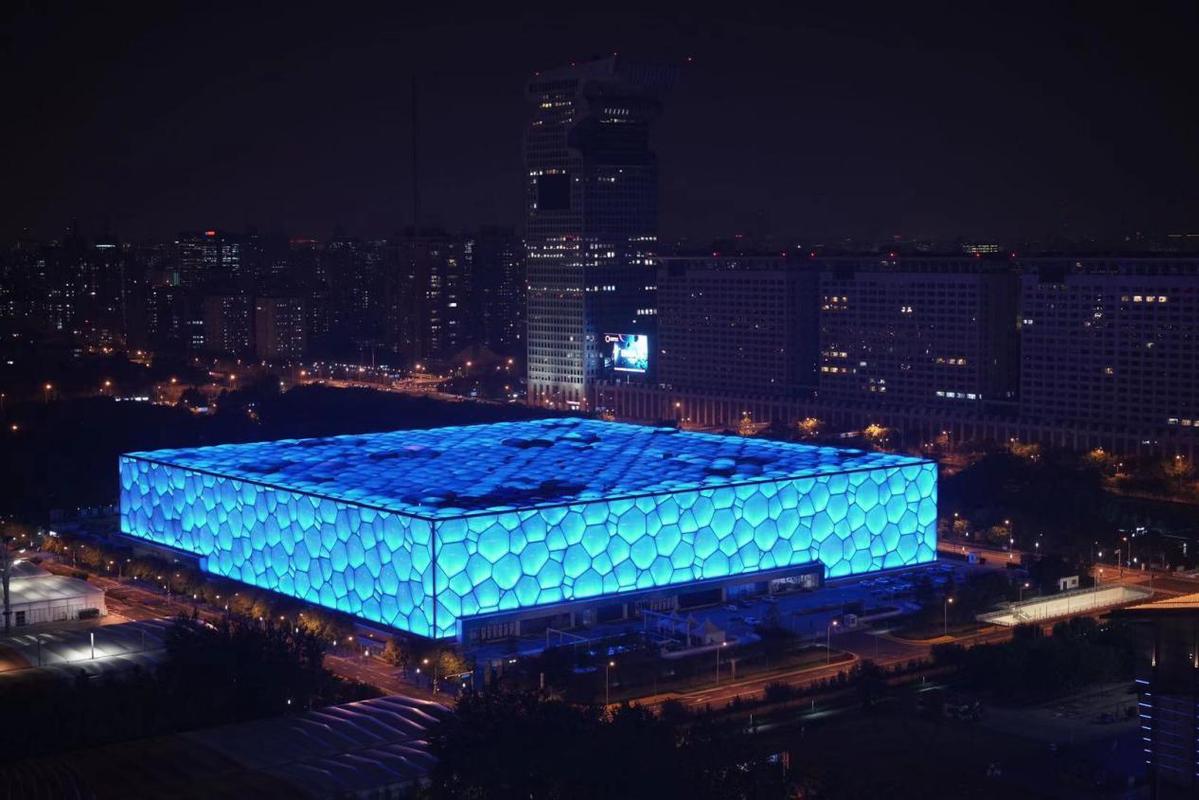 The recently renovated 'Ice Cube' in Beijing. [Photo provided to chinadaily.com.cn]
The recently renovated 'Ice Cube' in Beijing. [Photo provided to chinadaily.com.cn]
Beijing will re-use venues from the 2008 Olympics for the 2022 Winter Games. Among these, the National Aquatic Center or "Water Cube" - known as the "Ice Cube" for the upcoming Winter Games - will host curling events, and the National Indoor Stadium will host ice hockey. Opening and closing ceremonies will once again take place at the Beijing National Stadium, or Bird's Nest.
Clean energy venues
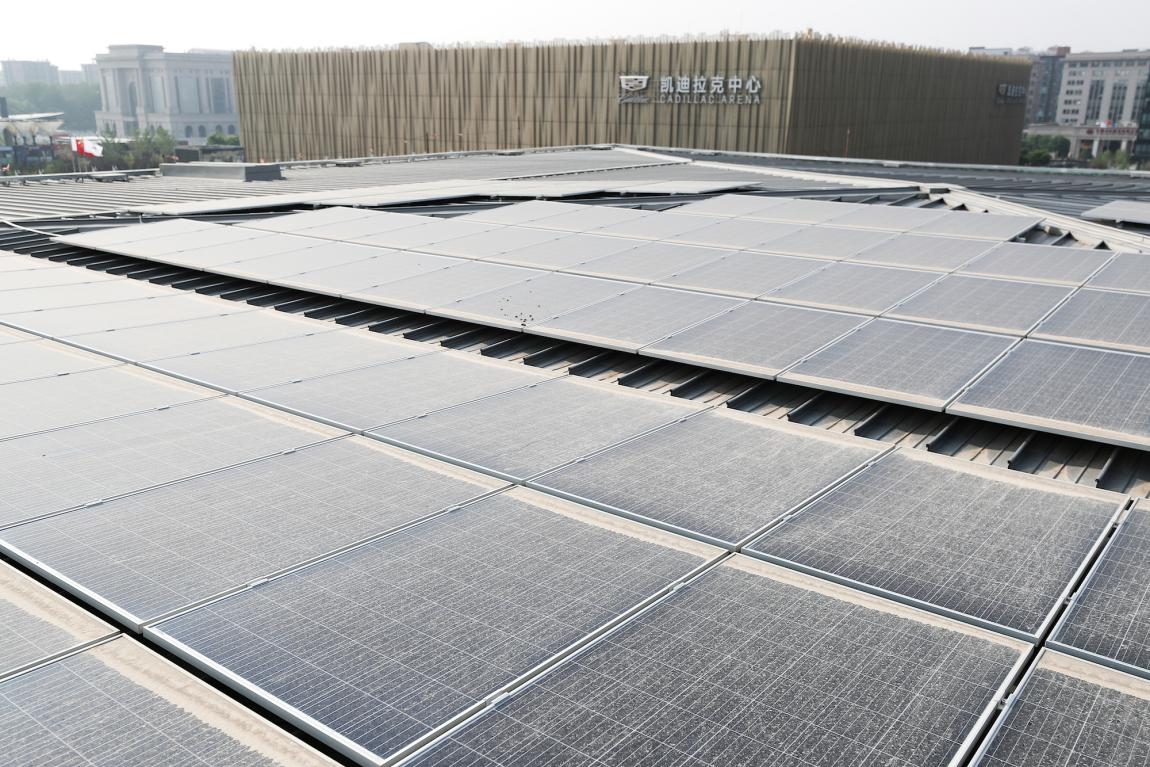
The solar-powered roof of the venue. [Photo provided to chinadaily.com.cn]
The 2022 Winter Olympics will be the first Games in history to exclusively power all venues with clean energy from renewable sources. Solar and wind power will be generated in the Zhangbei area of Hebei province.
All venues can be reached via public transportation.
Zero-Freon ice
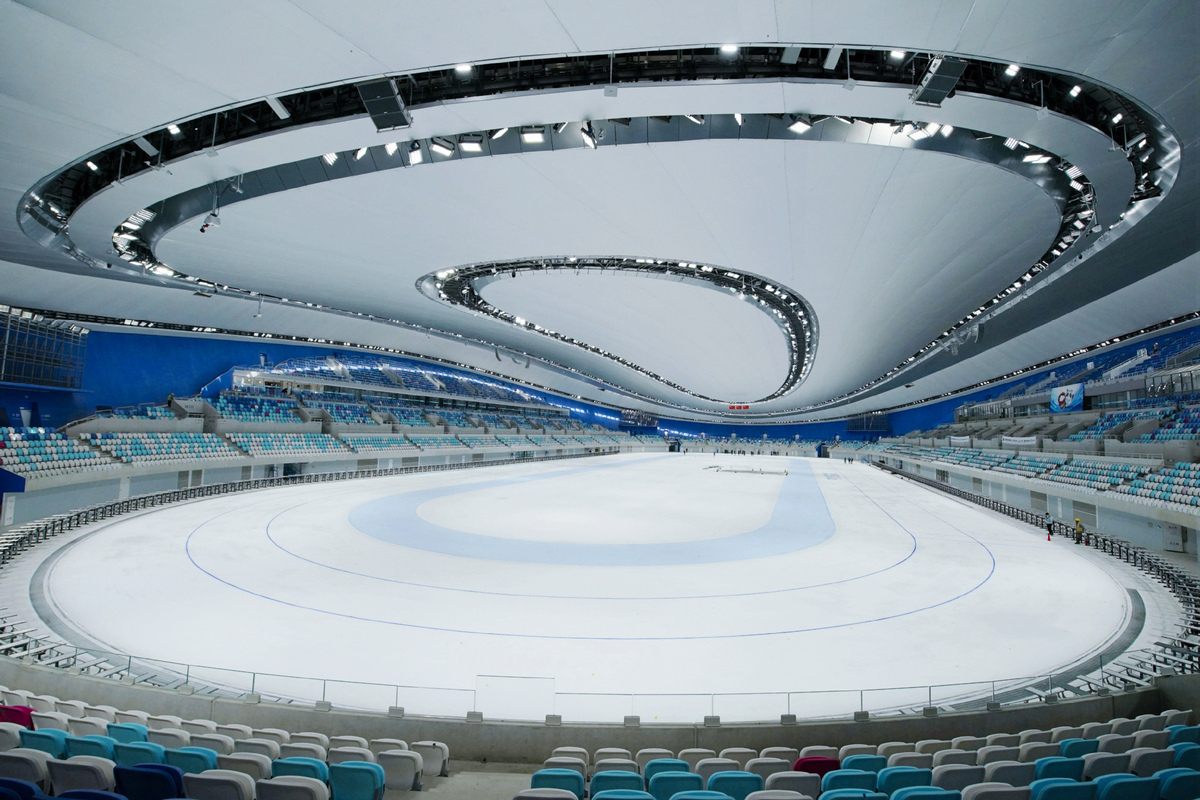
The National Speed Skating Oval in downtown Beijing. [Photo/Xinhua]
For the first time in the history of the Olympic Games, Beijing will use carbon dioxide in its ice-making procedures. Removing ozone layer-harming Freon as a refrigerant in ice making during the Games is expected to help reduce carbon emissions equivalent to that of 3,900 cars per year, and cut emissions from the activity to nearly zero.
The new ice-making technology will also significantly save electricity.
Green transportation
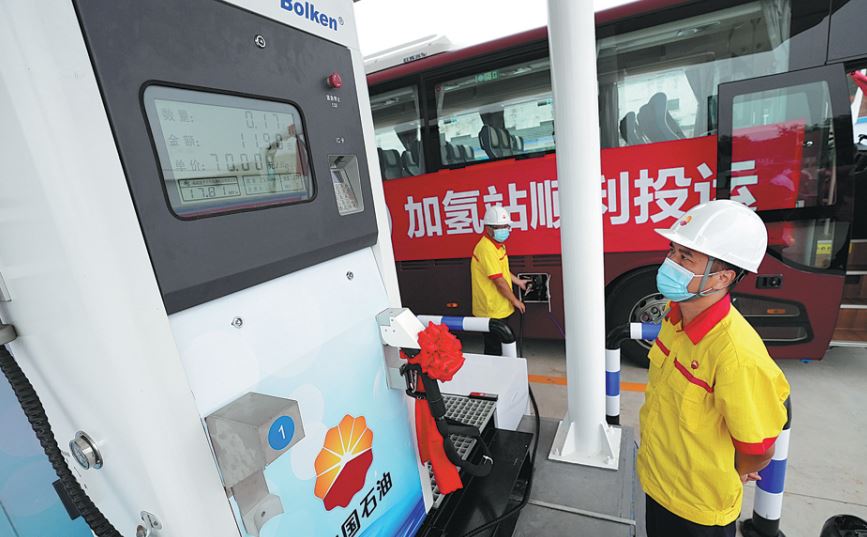
Beijing's first hydrogen filling station opened on Aug 15 in the city's Changping district. Staff members filled the first tank of hydrogen fuel for a service vehicle helping to prepare for the 2022 Beijing Winter Olympics. [Photo provided to China Daily]
Spectators at the 2022 Winter Olympics will be encouraged to travel by public transport across the three competition zones - downtown Beijing, its suburban Yanqing district and co-host Zhangjiakou in Hebei province - which have been connected by an electric-powered high-speed railway that began operation in late 2019.
All passenger vehicles used for the Games' official transport service will be powered by renewable energy. New energy vehicle charging facilities have been built at the venues and along roads between Beijing and Zhangjiakou.
A green Olympic Village
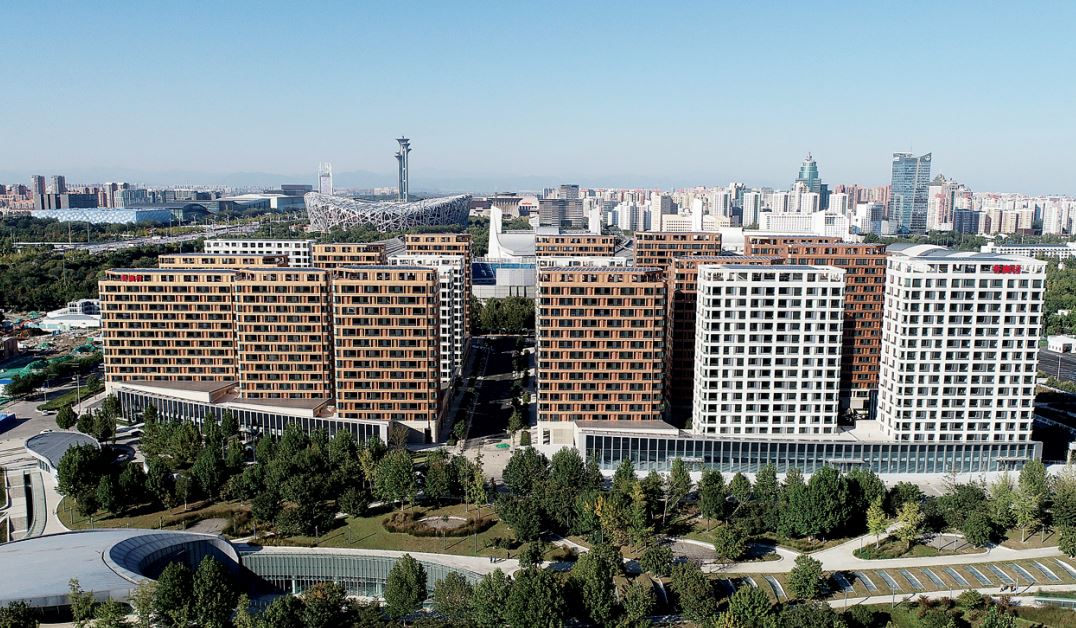
Beijing's Winter Olympic Village covers an area of 330,000 square meters and comprises 20 residential buildings. [Photo provided to China Daily]
According to the Beijing Winter Olympics Village's owner, Beijing Investment Group Co, all permanent buildings within the complex have passed the highest three-star certification for green construction with the recycling of materials, energy saving and environmental protection prioritized throughout the whole process of development.
















